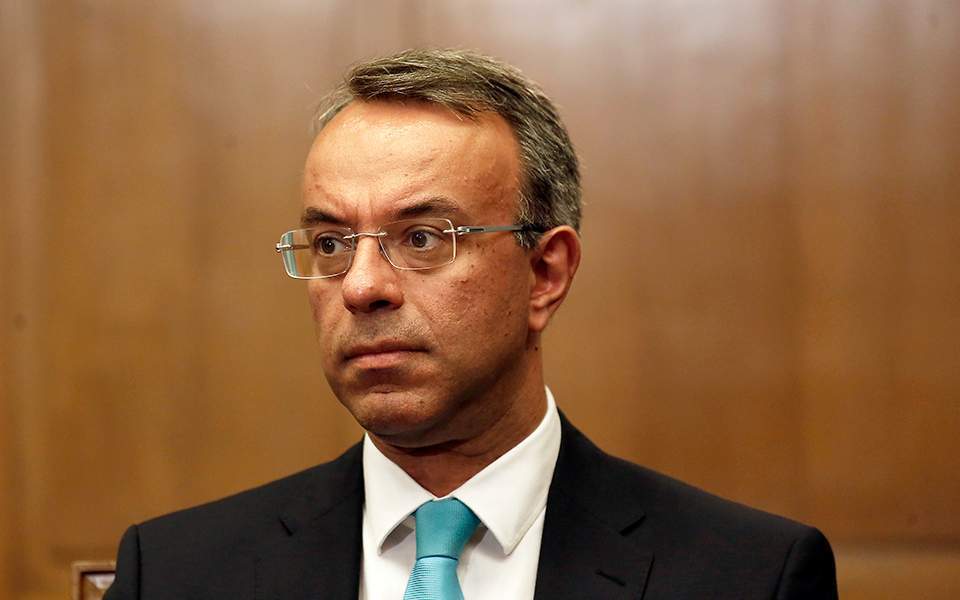Greece aims for investment grade by 2023, says finance minister
Christos Staikouras says emergence from junk status is one of Athens’ central objectives

Attaining investment grade for Greece by the first half of 2023 is one of the government’s central political goals, Finance Minister Christos Staikouras told the 6th Delphi Economic Forum on Friday.
He described the economic policy strategy as he has presented it to the cabinet, including four more core targets besides the emergence of the country’s credit rating from the so-called “junk” category: the reduction of the nonperforming exposures rate to below 10% by 2022, the return to fiscal balance and then the re-emergence of a primary budget surplus in 2023, and the establishment of sustainable growth.
Greece currently stands two to three notches below investment grade, depending on the rating agency, and the achievement of the government target within two years is considered quite realistic by the agencies.
“We will continue to promote reforms,” Staikouras pledged in a debate with the managing director of the European Stability Mechanism, Klaus Regling, who reiterated that the main challenge for Greece at this stage is the maintenance of its reform momentum that will contribute toward maintaining the sustainability of the Greek debt.
“We shall attain strong and fair growth,” the Greek minister assured, citing also the support from the Next Generation EU fund.
On another panel of the forum, focusing on the European Union fund, Alternate Finance Minister Thodoros Skylakakis confirmed there is the prospect of collecting 7.8-7.9 billion this year from the NGEU. He went on to stress that the main aim is changing the country’s production model, with a reduction of the illegal economy too. He also stated that the NGEU loans will not bear the signature of any civil servants, but those of banks, which will be acceptable in the context of the NGEU, as he claimed.
Skylakakis conceded that the implementation of the government’s “Greece 2.0” blueprint constitutes a great challenge, and mentioned that public investments will need to double within a year from the average rate of €5 billion to €10 billion.





